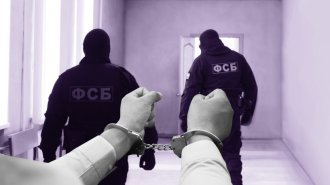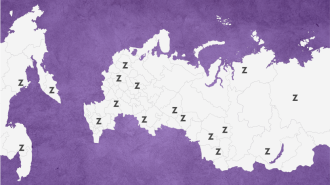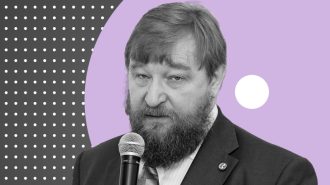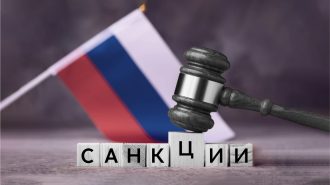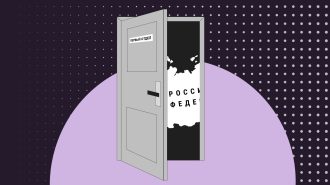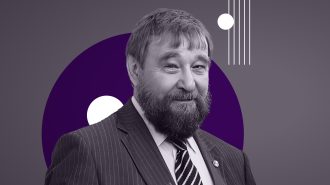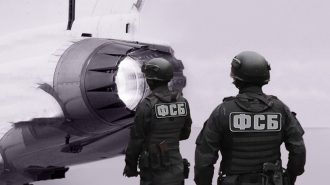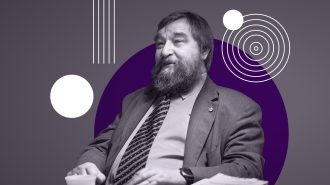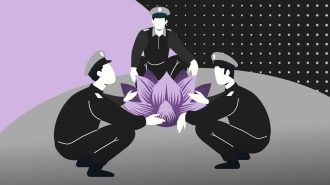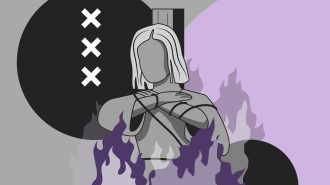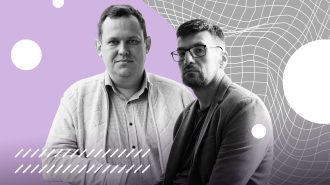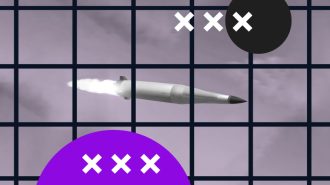Today one can hear more and more often that Russia in the coming decades will live under "eternal Putin". The political regime is stable, the economy shows stability. Will the country turn into the USSR 2.0 or into an "orthodox Iran"? Are there prerequisites for regime change in Russia? T-invariant spoke to Andrei Yakovlev, a well-known economist and associate researcher at the Davis Centre at Harvard University.
repression
The harsh sentence for the scientist is not an exception to the rule, but the current norm. It was not by chance that the prosecution asked to give Shiplyuk the maximum possible 20 years: the cruelty of the repressions is directly related to the war in Ukraine. Moreover, in the summer of 2023, amendments were made according to which life imprisonment can be given for high treason.
T-invariant is starting a series of materials about the state of the supercomputer industry in Russia and the world. Today we will tell you about the brightest player in this small but strategically important market — the company T-Platforms and its founder — Vsevolod Opanasenko, who has been living under a criminal case for the last five years.
33-year-old physicist Artem Khoroshilov is accused of treason. The FSB declared him a hacker who, on orders from the Ukrainian Armed Forces, organized "attacks on critical information infrastructure facilities." The employee of the Prokhorov General Physics Institute of the Russian Academy of Sciences could face life imprisonment.
Tomsk State University graduated the first masters of the pilot program "Legal Linguistics". As graduation theses, students defended a portfolio of linguistic research and expert assessments on real criminal and administrative cases.
The FSB has been persecuting members of the Russian Academy of Sciences Sergey Abramov and Oleg Kabov for several years now. Their criminal cases are so unprecedented that the American Physical Society, one of the largest in the scientific world, is worried about their fate. Its representatives are sending letters to the President of the Russian Academy of Sciences and the Minister of Science and Higher Education of the Russian Federation.
At the beginning of March 2022, graduate students of the European University in Florence Emil Kamalov and Ivetta Sergeeva, political scientist Margarita Zavadskaya and sociologist Nika Kostenko launched a sociological project OutRush, during which they surveyed three waves of those who left. Who are these people, what do they do, what do they think about returning home, what do they hope for? Nika Kostenko, a researcher at Tel Aviv University, talks about the results of the T-invariant study.
Even before the war with Ukraine, about 150 young Russian scientists became Fulbright scholarsand got the opportunity to study at American universities. In March of this year, the IIE and Cultural Vistas organizations sponsoring the program were declared undesirable in Russia. T-invariant looked into what awaits fellows in their home countries and what alternatives young scientists see for themselves.
Academicians turned to Vladimir Putin with a proposal to head a new body of the Russian Academy of Sciences - the Board of Trustees. But not everyone was able to vote for this decision. FSO employees blacklisted more than twenty scientists and did not allow them to attend the General Meeting of the Russian Academy of Sciences.
In the third year after the start of Russia’s full-scale invasion of Ukraine, journalism faculties and media departments at all universities in the country changed their policies. the transfer of experience to novice journalists from military officers, Z-bloggers and even former prisoners has become regular and widespread.
In Novosibirsk, they are considering the criminal case of corresponding member of the Russian Academy of Sciences Oleg Kabov, which was initiated by the FSB. This is the first case in Russia when a scientist is being tried for his allegedly unsatisfactory work, and scientific and technical expertise forms the basic part of the charge. The very fact that you can go to prison for poorly conducted research is a new page both in the history of Russian science and in the history of domestic jurisprudence. Kabov's case is a challenge to the entire scientific community. It will show whether science in Russia can defend its right to exist.
February 24, 2022 is a date that divided the lives of millions of people into before and after. Millions of Ukrainians became refugees, hundreds of thousands of Russians were forced to leave the country, thousands of people became political prisoners. Schools and universities have been invaded by Z-ideology. This gave rise to a new Russian reality, which more than 75 sociologists, historians, demographers and economists studying Russian society tried to comprehend.
The FSB completed investigative actions in the case of corresponding member of the Russian Academy of Sciences Sergei Abramov a year later: the materials were transferred to the court, which must set a date for the hearing. According to T-invariant, Abramov’s case involves seven donations of 1,000 rubles each. The scientist himself has repeatedly denied his guilt, including denying that he made these translations.
What could be the consequences of the break with CERN for Russian high-energy physics? T-invariant's questions were answered by the co-founders of the free online community "Dissernet" - physicists Andrei Rostovtsev and Andrei Zayakin.
T-invariant opens a series of publications related to the second anniversary of the war with Ukraine. In the first investigation, we tell how the FSB of the Russian Federation launched the largest “case of scientists” in modern Russia, pursuing the signatories of an anti-war letter throughout the country.
In 2023, the FSB began subjecting dissenters to punitive psychiatry. Corresponding Member of the Russian Academy of Sciences Sergei Abramov left the psychiatric hospital after the examination and became familiar with the updated version of the charges. T-invariant spoke with the scientist about his life with the “extremist” label, his political views and the reasons for the security forces’ attack on the Russian supercomputer industry.
New detainees in the case of Siberian scientists from the Institute of Theoretical and Applied Mechanics (ITPM) named after. Christianovich of the Siberian Branch of the Russian Academy of Sciences, accused of treason, was scientist Vladislav Galkin from Tomsk. The human rights organization First Department is confident that the repressive campaign is growing and the next victim of the FSB could be absolutely any scientist who has worked on this topic as part of international collaborations.
The Russian Federation's leading specialist in supercomputer systems was first checked by the FSB “for treason”, then kept under house arrest for six months on suspicion of “financing an extremist organization”. After fruitless attempts to plant according to the proven Soviet tradition, the “fool” is used. Sergei Abramov, corresponding member of the Russian Academy of Sciences, founder of a number of innovative companies, is planned to be sent to a psychiatric hospital for three weeks on November 30 for “conducting an inpatient examination.”Because the outpatient motivation of the scientist who organizes the supercomputer forum in Pereslavl-Zalessky, even while under investigation, the FSB could not understand even after eight months.
In Chicago, at the annual conference of the Russian-speaking American Scientific Association (RASA), sociologists who have recently been living in the United States chose for their presentations topics that can now hardly be discussed publicly while in Russia. Sergey Erofeev (Rutgers University)presented a brief overview of the most interesting presentations for T-invariant.
In Ivanovo, under strange circumstances, Olga Nazarenko, associate professor of the department of pharmacology of the Ivanovo State Medical Academy and political activist, died from numerous injuries. The lawyer was unable to get an investigation into the causes of her death and gain access to a medical report on the causes of death, so she is going conduct your own investigation. T-invariant spoke with the lawyer of the deceased and some other local activists who knew Olga personally and mourn her death.
Behind the names in the “Chronicle of the Persecution of Scientists”, which is jointly conducted by T-invariant and CISRUS, there are specific people forced to fight for their civil and academic freedoms. We decided to tell in detail who and why decides to go against government pressure in science and education. The first material focuses on the history of Novokolledzh, one of the largest colleges in Russia.How did the institution begin to work, despite the refusal of accreditation and the resignation of the director, candidate of historical sciences Sergei Chernyshov? Why do the new director Yuri Lobanov and Sergei Chernyshov himself not give up their professional and civic positions? Yulia Chernaya spoke with the former and current leaders of Novocollege - Sergei Chernyshov and Yuri Lobanov.
Sergey Abramov, corresponding member of the Russian Academy of Sciences, has been under house arrest for two months now. He is accused of "financing an extremist organization." Details of the criminal case remain unpublished, but T-Invariant found out that Abramov had previously been investigated under the article of law on "state treason," and the scientist had a security clearance for state secrets.
Three physicists were arrested in so called "Novosibirsk case". It wasn’t the first time. Previously, four scientists were also accused of treason in different years. All of the scientists accused in all these cases participated in the projects of the seventh framework program of the European Union "TransHyBerian" (coordinator — Von Karman Institute of Hydrodynamics, Belgium). However, the interlocutors and sources of T-invariant suggest that the contacts of scientists with China and Iran are only an excuse, not the reason for the arrests.












